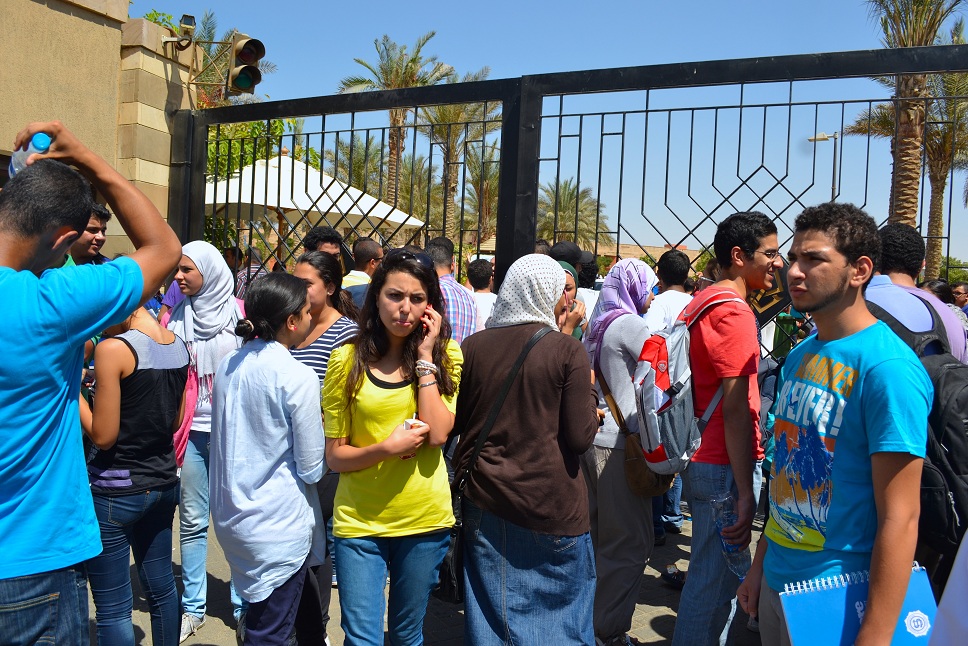The Annapolis conference was primarily an instance of political theater rather than a significant international diplomatic event. And while the performance was not particularly good and the two key actors, the Israeli prime minister and the president of the Palestinian Authority, not at their best, the show – at least from the standpoint of the principal producer, the United States – must go on.
The settlers of Judea and Samaria, despite having absorbed the Palestinian terror campaign that preceded the event, were not particularly anxious over the drama presented at Annapolis. They are accustomed to such dramas and even worse being staged in the United States – e.g. the Oslo signing, Wye and Camp David. These usually conclude with a Palestinian bloodbath that affects all of Israel but focuses especially on the roads and villages of the settlers.
Some of those settlers allow themselves to hope that this time, considering that the Annapolis performance lacked the highly dramatic features of antecedents like Camp David in 2000, the outcome will be less catastrophic than the thousands of wounded and over 1,200 Jews who paid with their lives for the confidence placed in Yasser Arafat after that particular drama.
The settlers’ primary concern emerges from the fear that even after so many negative precedents, those in charge in Jerusalem and, of course, Washington still have not learned their lessons. Here the capacity to absorb real lessons places at risk not only the future of the settlement project in the territories but also, indeed primarily, the future of the state of Israel.
The immediate challenge facing the 285,000 settlers concerns preventing the removal of so-called “unauthorized outposts and annulling the directive to freeze construction in veteran settlements, including some that have been in existence for nearly 40 years. The latter edict strangles not only the settlers’ external expansion but their internal growth as well, insofar as some 10,000 babies were born last year in the settlements of Judea and Samaria.
In orderly societies, citizens seeking to reverse such inhumane governmental edicts are referred to the judicial system. Yet the latter, due to its ideological rather than judicial structure, is virtually inaccessible. True, there is a basic law that guarantees human dignity and liberty; in not a few instances, particularly related to the Israeli Arab sector, it has prevented the government from stopping citizens from building dwellings, based on the argument that you cannot forbid people from building on their own land when they possess building permits issued by the municipal authority where they live. The same should hold for the territories, especially the veteran settlements. Yet the settler leadership’s assessment, based on previous experience, mitigates against appealing to an Israeli court system that, especially at the High Court of Justice level, leans noticeably toward the political left.
A central issue that must be factored into any assessment of the settlers’ response to the removal of outposts and cessation of construction work in veteran settlements touches on the trauma they suffered following the destruction of the Qatif Bloc settlements in the Gaza Strip two-and-a-half years ago.
The Yesha Council, the settler leadership, was blamed by the vast majority of settlers for negligence in this connection; worse, the leadership was cited for a lack of will to fight against the settlement removal project. Some settler leaders were even accused of collaboration with the IDF and the political leadership, especially PM Ariel Sharon and his sons.
This crisis of confidence led to the resignation of the council’s chairman, Bentzi Lieberman, the dissolving of the council and the creation of a new and more democratic body that better represents the settlers’ diverse ideological composition. The new leadership is not likely to allow itself to be blamed for avoiding a fight or collaborating with the government. Thus if Ehud Olmert really attempts to implement what he committed to in Annapolis – removing outposts – he is liable this time to encounter far more aggressive and comprehensive opposition than at the Qatif Bloc. (I was there during the expulsion and can testify that there was no real struggle; the media description of a violent clash was largely contrived, in part to create a media drama.) The brutal and traumatic dismantling of houses at Amuna some 18 months ago also seriously affected settler attitudes, particularly among the younger generation, which has sworn not to allow a replay even if this means a major confrontation with the police.
Nor will Israeli public opinion support the government again the way it did at the Qatif bloc. In particular, the public recognizes that the Gaza removal merely increased terrorism, particularly Qassam rocket attacks on Sderot and the western Negev. Further, the Israeli public, including those prepared to make territorial concessions to the Palestinians, does not believe that concessions such as dismantling outposts should be made for Palestinian leader Mahmoud Abbas (Abu Mazen). The public knows that Abbas is not a genuine leader who can, in accordance with his obligations, reciprocate to Israel first and foremost by ending terrorism. If he is granted Israeli concessions while failing to deliver on his own obligations to Israel, the latter will retain no assets with which to pay the Palestinian leaders who follow Abu Mazen.
All in all, the settlers are only somewhat worried this time. They perceive that, despite American pressures, once again they will succeed in preventing the worst from happening. Not so much because the government of Israel will consider their feelings, but rather because of the deterrence they are beginning to generate and, no less, because Olmert’s “partner , Abu Mazen, is incapable of offering Israel anything in return.
Yisrael Harel heads the Institute for Zionist Strategy in Jerusalem and writes a weekly political column in Haaretz. He is former head of the Yesha Council (Council of Jewish Settlements in Judea, Samaria and the Gaza District) and former editor of its monthly Nekuda. This commentary is published by DAILY NEWS EGYPT in collaboration with bitterlemons.org.


